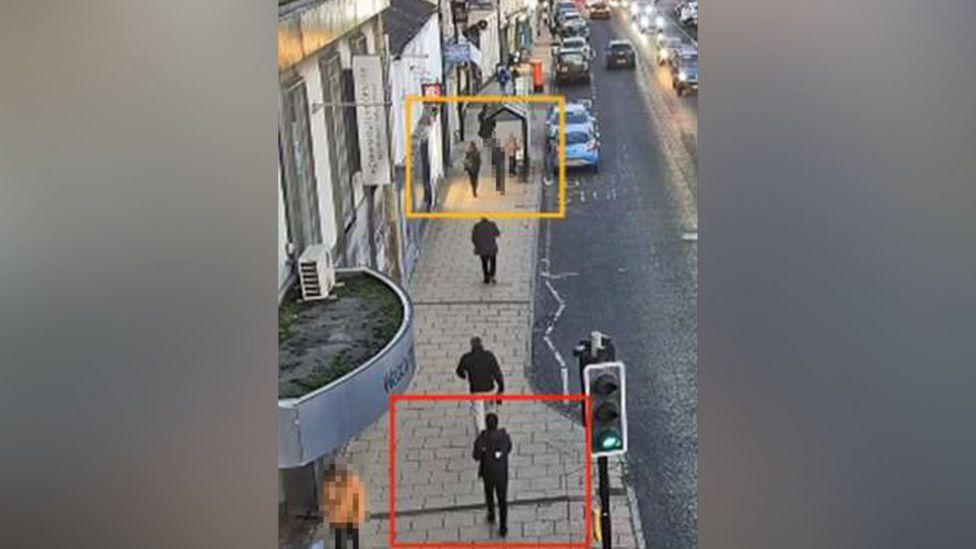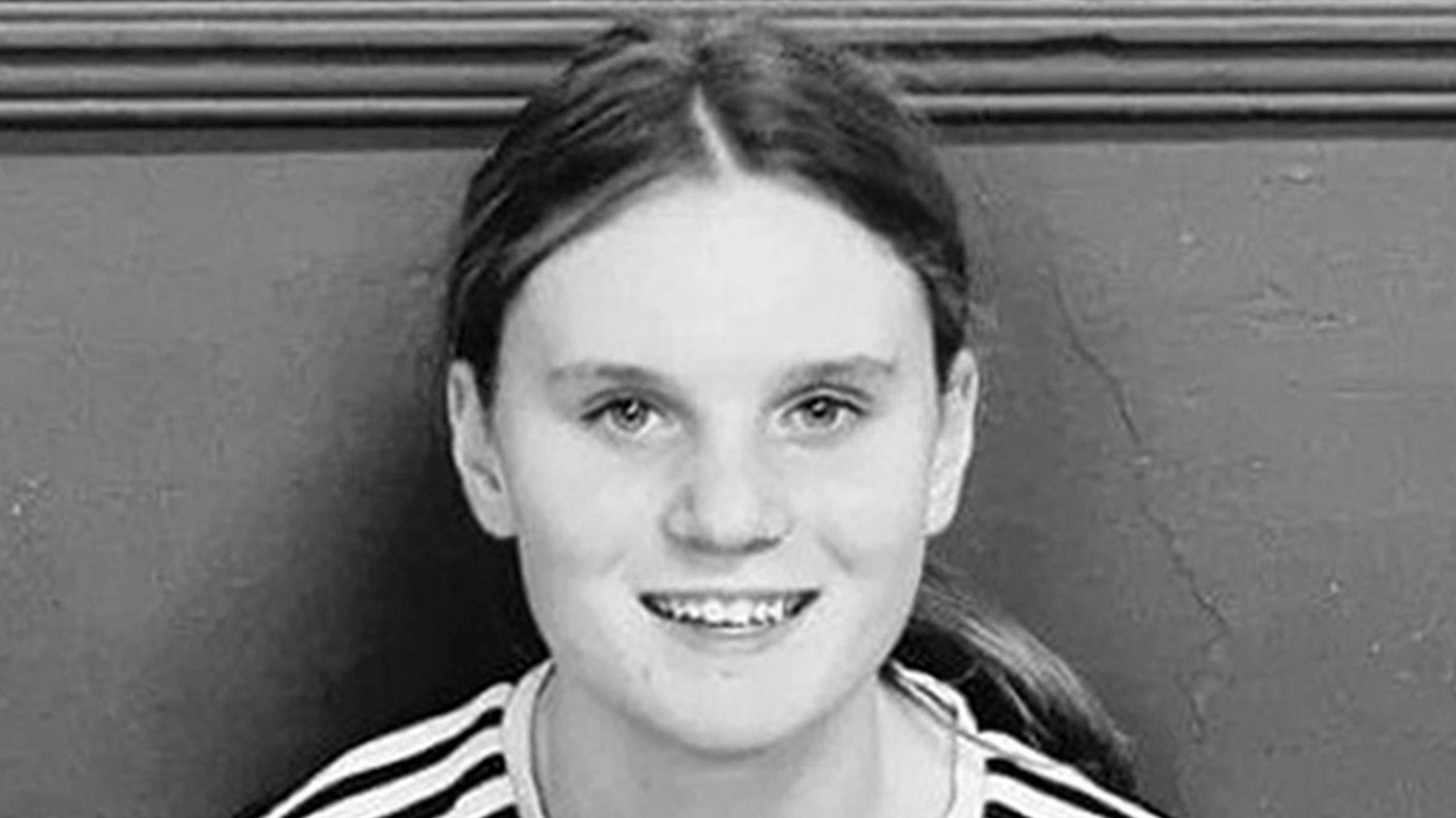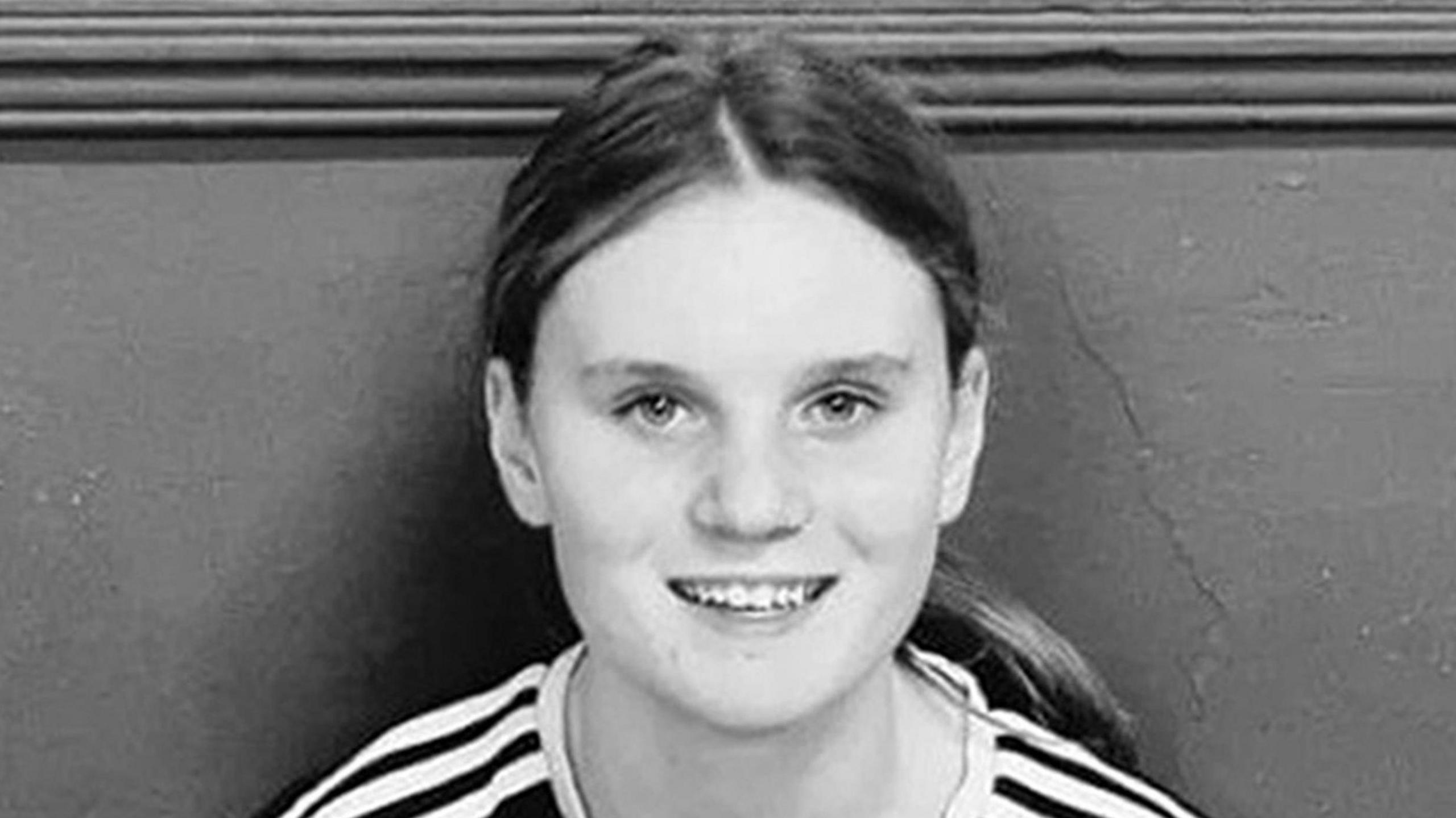Girl's killer could have 'zoned out'

Holly Newton died after she was stabbed in an alleyway in Hexham last year
- Published
A teenager accused of murdering a 15-year-old girl showed signs of post-traumatic stress disorder (PTSD), a court has heard.
Holly Newton died after being stabbed multiple times in an alleyway in Hexham, Northumberland, on 27 January last year.
Psychologist Dr Alison Foster told Newcastle Crown Court the disorder could have caused the defendant - who is 17 and cannot be named because of his age - to "zone out" during the attack.
The defendant has admitted manslaughter, but denies murder and told the court he "went blank" during the attack.
Dr Foster also said the defendant had suffered abuse as a child and was hit by objects such as a belt by his mother and her partners.
The court heard flashbacks were a feature of PTSD and Dr Foster told the court that, when she assessed the defendant, he had described having images in his mind of "bad stuff".
The court previously heard the boy had been following Holly for 45 minutes on the afternoon she died, but he said he had been carrying the knife to harm himself, not Holly.

The defendant, in the red square, following Holly, in the yellow frame, for 45 minutes before her death
Dr Foster told the court that if Holly had been horrible to the defendant, as he had previously claimed, it would have raised his stress levels, leading to a loss of control which could have led to the attack.
When questioned about his claim he had gone blank, Dr Foster said it could be dissociation – a feature of PTSD.
Dr Foster said: "It can be forgetting, so blanks and amnesia, being detached from reality and what’s happening in that moment, feeling quite numb and not expressing feelings."
The psychologist also told the court that an autistic meltdown was a "temporary condition" that involved a "loss of control in behaviour and emotions".
She said loss of control could be "screaming and crying, lashing out at somebody, resisting attempts to restrain and calm them down" and "running away".
Defendant's 'low IQ'
Dr Foster also said the boy had an "extremely low" IQ of 59.
This number, she said, was a score lower than you would expect 99.7% of people who take the test to get.
The psychologist told the court during the two occasions she had met the teenager to assess him, he had shown an extremely low level of understanding complex words.
She also told the court his other diagnosis of autism meant he was good at "masking" and would often copy others when using language.
"His verbal comprehension is very limited. I have reviewed some of his evidence," Dr Foster said.
"I think he is someone who has autism and can mask – he can see what other people do and copy."
When asked by the judge if the defendant could understand words like stalking, Dr Foster told the court: "I suppose people have experienced language based on their experiences, so they might be words that he is already familiar with.
"Words that he has been made familiar with over the course of the trial."
Dr Foster said a combination of the defendant’s learning difficulties, autism and PTSD could have all contributed to him attacking Holly.
Under cross-examination, she agreed having a low IQ did not stop a person having the intent to hurt someone - and that she could not "be sure" PTSD was a plausible explanation for the attack, due to its sustained nature and his actions leading up to it.
The teenager also denies stabbing another boy who tried to stop the attack.
The case continues.
Follow BBC North East on X (formerly Twitter), external, Facebook, external and Instagram, external. Send your story ideas to northeastandcumbria@bbc.co.uk.
Related topics
More stories from BBC North East and Cumbria
- Published9 August 2024

- Published8 August 2024

- Published26 July 2024
